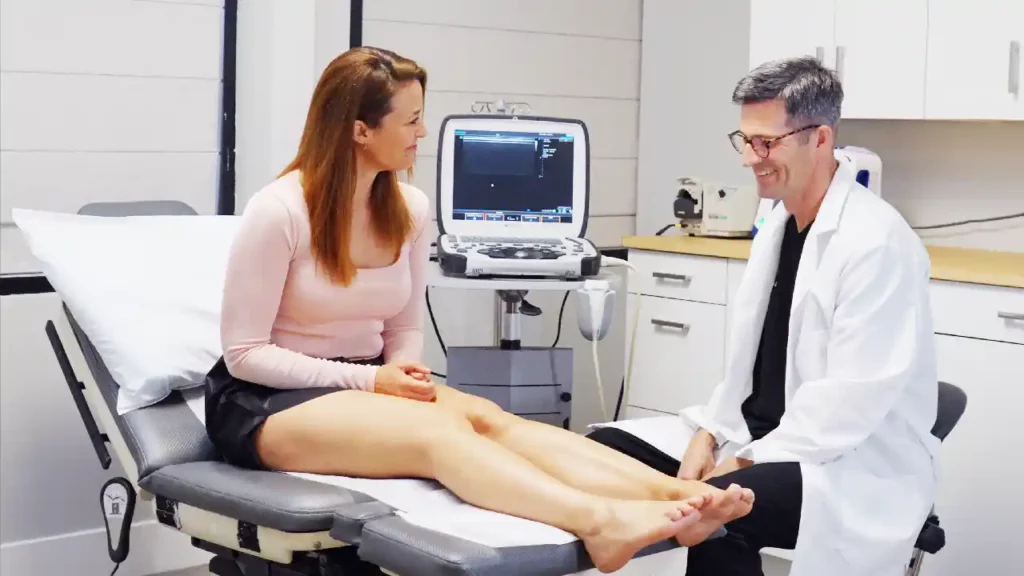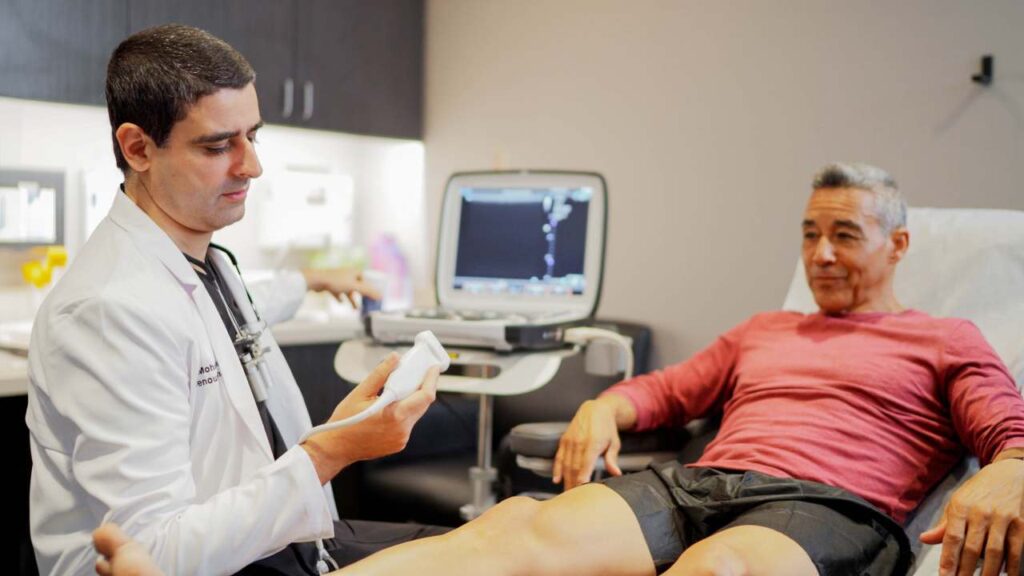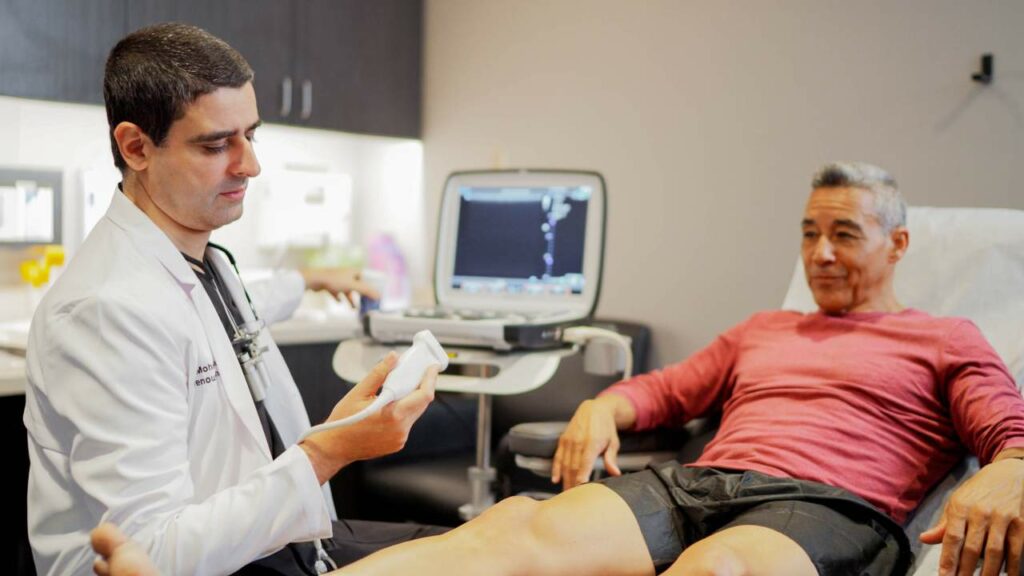Can Monkeypox affect your veins? What you need to know!
How does Monkeypox make you sick?
Monkeypox can be transmitted from animals to humans through bites, scratches, or direct contact with the blood, body fluids, or skin lesions of infected animals. It can also be transmitted from human to human through respiratory droplets, direct contact with bodily fluids or lesion material, and indirect contact through contaminated objects (fomites), such as bedding or clothing.
The incubation period typically lasts 1–2 weeks and starts with symptoms such as fever, headache, muscle aches, back pain, swollen lymph nodes, chills, and exhaustion. 1 to 3 days after the fever begins, a rash develops, often starting on the face and then spreading to other parts of the body, including the palms of the hands and soles of the feet. The rash evolves through several stages—macules (flat lesions), papules (raised lesions), vesicles (fluid-filled blisters), pustules (pus-filled lesions), and scabs. The rash can last for 2 to 4 weeks and can leave scars once healed.
How can monkeypox affect your vein health?
While monkeypox itself does not directly pose risks to vein health or cause vein-specific conditions like varicose veins or deep vein thrombosis (DVT), there are a few situations where vein health could be indirectly affected, such as prolonged bed rest and vascular inflammation.
The majority of monkeypox cases are minor and self-limiting, and symptoms usually go away in two to four weeks. Severe cases, however, can happen, particularly in young infants, expectant mothers, and those with weakened immune systems.
Long-term bed rest or immobility increases the risk of deep vein thrombosis (DVT), a condition in which blood clots form in the deep veins, mainly in the legs. Less movement can cause stasis, or decreased blood flow, which raises the possibility of clot development. If a clot dislodges and goes to the lungs, this could lead to consequences including pulmonary embolism.
Significant dehydration from a fever, loss of appetite, or other symptoms can also occur with monkeypox. Dehydration causes the blood to thicken, which raises the possibility of clot formation—especially when the patient is immobile.
In more severe cases, the skin lesions caused by monkeypox can get infected, leading to cellulitis and vein-related issues like thrombophlebitis. Severe infections may cause sepsis, harming blood vessels and increasing the risk of clots. Though rare, Mpox can trigger widespread inflammation that may damage blood vessels directly or affect the lymphatic system, causing complications that can further impact vein health, especially in people with existing vein problems.
How can you treat varicose veins?
Even if you don’t have monkeypox, you may still have vein disease. The good news is that spider veins and varicose veins can be treated! If you are seeing spider veins, varicose veins, or stasis dermatitis, and experiencing leg pains and fatigue, it is essential to set up a vein treatments appointment with a vein specialist. Risk factors can exacerbate these signs and symptoms, so you need to take action to minimize damage to the veins and prevent further problems down the road.
In almost all cases of vein disease, a vein doctor will recommend a treatment that is non-surgical and minimally-invasive, as they are safer and easier for both the patient and doctor at the vein center. The main saphenous veins that cause varicose veins can be targeted using VenaSeal, radiofrequency ablation, or varithena to help blood start flowing in the right direction towards the heart again. These vein treatments take less than an hour and cause little to no discomfort. You can return home or back to work right after the procedure because there is no anesthesia or recovery time involved.
VenaSeal is an FDA-approved vein adhesive that, as its name implies, closes the leg’s saphenous vein, which is the source of varicose veins. In a matter of seconds, the VenaSeal glue seals the injured vein, and the newly formed seal causes your legs’ healthy veins to naturally reroute blood flow.
With radiofrequency ablation, a topical anesthetic is first administered, and then a tiny catheter is placed into the unhealthy vein. After administering a numbing substance to the vein, the vein specialist utilizes ultrasound imaging to guide the catheter to the precise location. The catheter then uses thermal radiation to shut the vein walls. This vein treatment has over 97% success rate, and shows its effects immediately.
Large, bulky varicose veins can be treated to seem smaller and have less symptoms by having a vein doctor inject Varithena, a sclerotherapy foam, into the vein. The term “sclero” refers to hardening, which seems like the last thing you want to happen to your veins. But a vein doctor injects the foam into the injured veins, irritating the vein wall linings to the point where they adhere to one another and seal the vein. Like the other two treatments described, this gradually reroutes blood into healthier veins to promote better blood flow. It takes less than an hour at a vein clinic and involves no pain or discomfort.
You can schedule your consultation at our vein center with any of our incredible vein doctors and be assured of cutting edge treatment. This medical group prioritizes patient care and strives to provide treatment with compassion and professionalism. Check out a Vein Clinic near you for vein treatments today!





